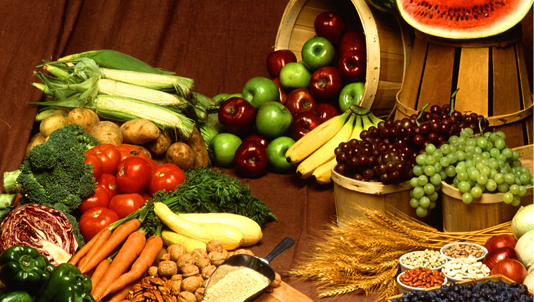
There are three macronutrients that are essential for growth, metabolism, and other body functions, which include carbohydrate, protein, and fats. Carbohydrates are the main energy source of the body. In fact, a zero carb diet is actually very difficult to achieve and is not recommended as it can do harm than good.
Why do we need to eat carbohydrates?
Carbohydrates are primary source of energy that gets used first before protein and fat. It is a macronutrient that the body needs in larger amounts. Basically, we need carbohydrates because:
They are the body’s main source of fuel
They can be easily used by the body for energy
The cells and tissues in the body can use glucose for energy
They are vital component that makes a healthy central nervous system, brain, kidneys, heart and muscles.
They can be stored in the muscles and liver that can later be used as energy.
They are important in intestinal health and waste elimination.
The importance of low-carb diet
Many people don’t seem to understand the low-carb diet, but just like other foods, all diets restrict something. A low-carb diet is proven to loose weight, reduces blood sugar, and reduces blood pressure. Remember, this is a low-carb diet and not no-carb diet.
The Best Low Carb Diet
Whole grains: Whole grains is one of the best sources of fiber, resistant starch, vitamins, minerals, antioxidants and phytochemicals while naturally low in fat and cholesterol free. These grains provide an array of health benefits.
Dark green veggies: Most of the veggies provide the essential nutrients that the body requires but the dark greens are often the best source of vitamins and minerals that come in high levels.
Nuts: Nuts such as almonds, cashews, and walnuts contains monounsaturated fats and phytochemicals. The omega-3 fatty acid in nuts if taken in sufficient amounts may help lower blood cholesterol, enhance the immune system, and decrease the risk of some cancer.
Green Tea: Green tea has a compound known as the catechins, which acts as powerful antioxidants that combats the damaging free radicals in the body.
Olive oil: Olives contains high amount of phytochemicals, many of which are antioxidants and anti-inflammatory in the body. In fact there are about 30 phytochemicals in olives that are known to help prevent the risk of cancer, promote heart health, and reduce inflammation.
Flaxseed: Flaxseed especially the ground one is rich in fiber, lignans, and plant omega-3s, which can be readily absorbed by the body.
Fish: Cold-water fish like salmon and mackerel is a rare source of vitamin D and a rich source of omega-3 fatty acids, along with a dose of potassium. The omega-3s have been linked to the prevention of cardiovascular diseases and higher mental performance.
Berries: Berries are widely known for its high levels of antioxidants that can help fight oxidative stress caused by free radicals. Eating a diet rich in antioxidants can help prevent various illnesses. The anthocyanins are the key player in reducing inflammation, preventing and managing arthritis. The anthocyanins work along with quercetin to help slow the age-related memory loss.
Low-Fat Dairy: Including a low-fat dairy in your diet provides the important nutrients to make healthy bones. This includes calcium, vitamin D, protein, phosphorous, magnesium, vitamins A and B6.
Conclusion
It is very clear that carbohydrates are essential for the optimal functioning of the body. So don’t cut them out of your diet.
Enjoyed Best Low-Carbs Superfoods? Share it with your friends so they too can follow the Superfoodsliving journey.
Share on Pinterest
